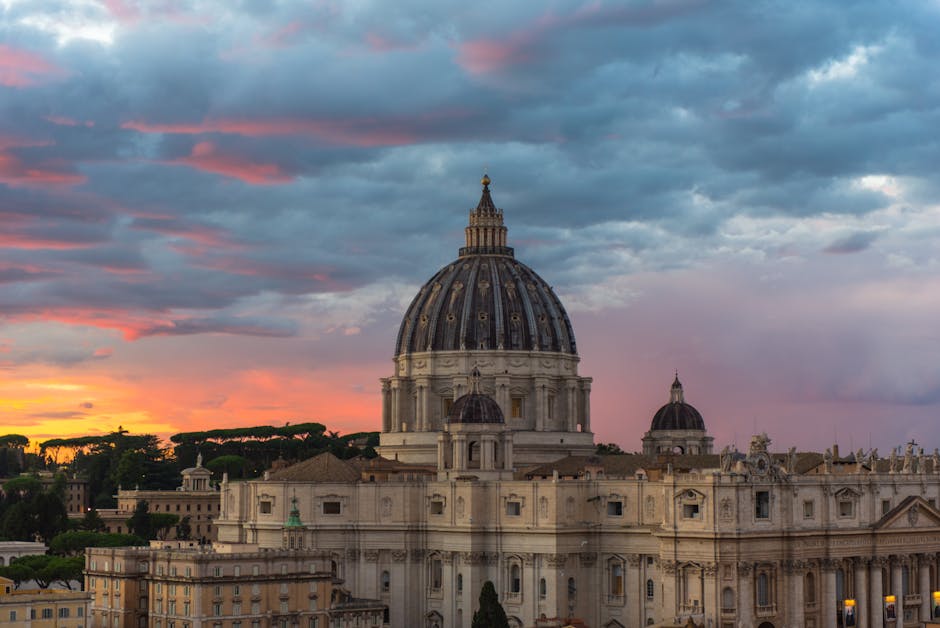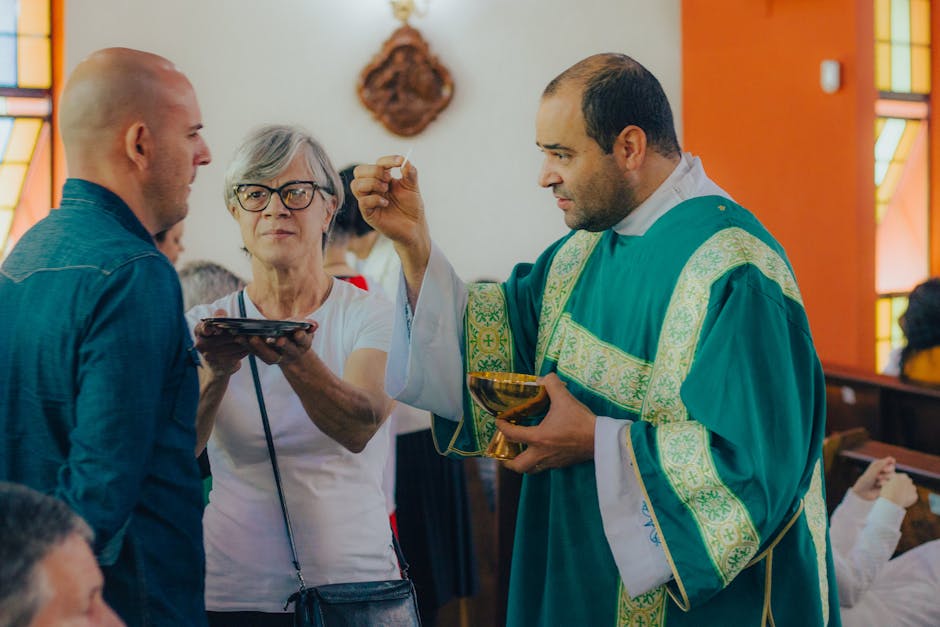Standing on the edge of a medieval cathedral, a young woman whispers desperate prayers into the echoing void. Eight centuries later, a tech executive sits in morning traffic, murmuring similar words into the silence of his car. Both share the same haunting question: “Why can’t I feel God’s presence?”
This spiritual drought—what mystics call “the dark night of the soul”—is perhaps Christianity’s most universal yet least discussed experience. It cuts across denominational lines, educational backgrounds, and centuries with remarkable consistency. The feeling of divine absence doesn’t discriminate between the devoted monk and the casual Sunday churchgoer.
The Unexpected Company You Keep
Take comfort in this: your spiritual heroes likely weathered similar storms. Mother Teresa’s private journals, published after her death, revealed decades of spiritual emptiness while she served Calcutta’s poorest residents. “Where is my faith?” she wrote. “Even deep down… there is nothing but emptiness and darkness… If there be God—please forgive me.”
These weren’t fleeting moments of doubt but a sustained interior desert that lasted nearly 50 years—coinciding with her most visible humanitarian work. The woman whose face radiated compassion was navigating her ministry through profound spiritual darkness.
St. John of the Cross, the 16th-century Carmelite who coined the term “dark night of the soul,” wasn’t describing a theoretical concept but documenting his own agonizing experience of divine silence. His contemporary, Teresa of Ávila, experienced such prolonged spiritual dryness that she once quipped to God, “If this is how you treat your friends, no wonder you have so few!”
The Cultural Disconnect
Part of our struggle stems from living in an era obsessed with emotional experience. From Netflix to Instagram, modern life promises constant emotional stimulation. We’ve developed spiritual taste buds that crave perpetual divine fireworks—dramatic answers to prayer, tear-inducing worship experiences, and Instagram-worthy spiritual epiphanies.
“We’re dangerously close to treating God like another content creator who needs to continuously entertain us,” explains Father Miguel Hernandez, who counsels spiritual seekers at a Jesuit retreat center. “The divine presence often works more like yeast in dough than special effects in a Marvel movie—transformative but rarely spectacular.”
The early desert fathers and mothers would find our expectations peculiar. They understood that, like any profound relationship, our connection with God naturally cycles through seasons of felt intimacy and apparent distance. They didn’t pathologize spiritual dryness but recognized it as fertile ground for deeper faith.
What’s Really Happening?
Science offers intriguing perspectives on why God might feel absent. Neurologists point to the brain’s habituation response—our neural tendency to stop noticing consistent stimuli. The same mechanism that helps you stop noticing the hum of your refrigerator might be dampening your awareness of God’s constant presence.
Psychologists note that our expectations dramatically shape our perceptions. If you expect God to manifest as emotional comfort, you might miss divine presence in unexpected places—the challenging conversation that prompts growth, the unanswered prayer that develops perseverance, or the mundane task that cultivates faithfulness.
Historically, spiritual directors distinguished between consolation (felt divine presence) and desolation (perceived divine absence), but they never equated the latter with actual divine abandonment. St. Ignatius insisted that spiritual growth often accelerates during periods of desolation—like muscles developing through resistance training rather than comfortable stretches.
The Surprising Purpose
“What if divine silence isn’t punishment but promotion?” suggests Sister Constance Marie, who guides retreatants through the Spiritual Exercises. “Perhaps God is treating you not as a spiritual infant who needs constant reassurance but as a maturing believer ready for deeper faith.”
Consider a parent teaching a child to ride a bicycle. Initially, they hold the seat, providing constant support and vocal encouragement. But eventually—if they want the child to truly learn—they must let go while remaining attentively present. The child feels suddenly alone but is actually experiencing a deeper type of parental love—one that fosters independence within relationship.
Medieval mystic Meister Eckhart proposed that God’s seeming absence might actually be God’s most intimate presence—a connection so close it bypasses our emotional radar entirely. “God is closer to me than I am to myself,” he wrote, suggesting that sometimes we don’t feel God for the same reason fish don’t feel water.
Practical Steps Through the Desert
For those currently wandering spiritual badlands, several time-honored practices offer guidance:
1. Embrace the Desert’s Gifts: Desert experiences strip away spiritual pretense and performance. When there’s no emotional payoff for prayer, you discover your true motivations. Are you seeking God or merely the feelings God provides?
2. Maintain Spiritual Rhythms: Brother Lawrence, the 17th-century Carmelite known for practicing God’s presence while washing monastery dishes, continued his devotions through decades of spiritual dryness. “I flip between devotion and dryness,” he wrote, “but I continue regardless, and God performs all in me.”
3. Look for God in Unexpected Places: During a retreat in Arizona’s Sonoran Desert, I met Maria, a grandmother who discovered God’s presence not in church but while caring for her husband with Alzheimer’s. “I felt nothing in worship for years,” she told me, “until I realized God was speaking through Jose’s needs, not worship songs.”
4. Redefine God’s Voice: Scripture describes God speaking through still, small whispers rather than earthquakes and fire. Perhaps God is communicating through subtle community needs, natural beauty, or moral intuitions rather than emotional experiences.
5. Find Community: The ancient desert monastics gathered in communities precisely because they understood spiritual drought was nearly universal. Sharing your experience with trusted believers provides perspective when your internal spiritual barometer seems broken.
The Historic Pattern
Throughout Christian history, spiritual giants describe a common trajectory: initial conversion brings intense spiritual feelings, followed by a prolonged desert, which eventually gives way to a deeper, more mature connection. This final stage isn’t characterized by constant emotional highs but by a steady awareness of divine presence that transcends feelings entirely.
C.S. Lewis described his own progression from “falling in love” with God to developing “the quiet consistency of marriage.” The latter lacks the former’s emotional electricity but contains deeper intimacy and sustainability.
The Counterintuitive Truth
Perhaps the most comforting insight comes from those who’ve emerged from extended spiritual winters. Almost universally, they report that God was never actually absent—only working through different channels. Like an author writing themselves into their story as an apparently minor character, God often appears in unexpected forms.
The next time divine silence leaves you questioning, remember the paradoxical promise tucked within Israel’s ancient poetry: “Even darkness is not dark to you” (Psalm 139:12). The apparent absence itself might be the most profound presence of all—not God’s disappearance but God’s invitation to a relationship that transcends your spiritual senses and transforms your deepest self.
And that transformation, not emotional comfort, has always been the point.




